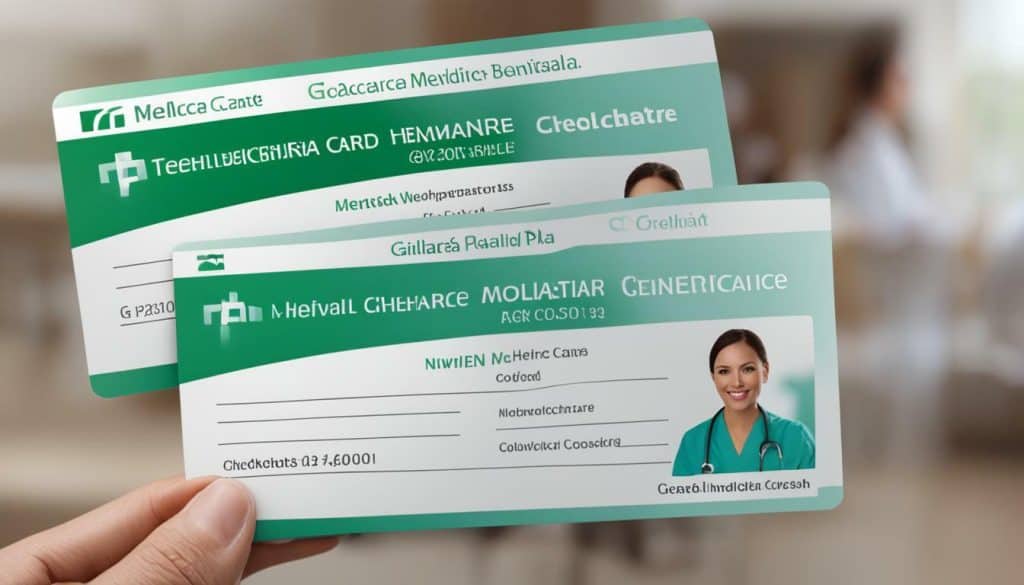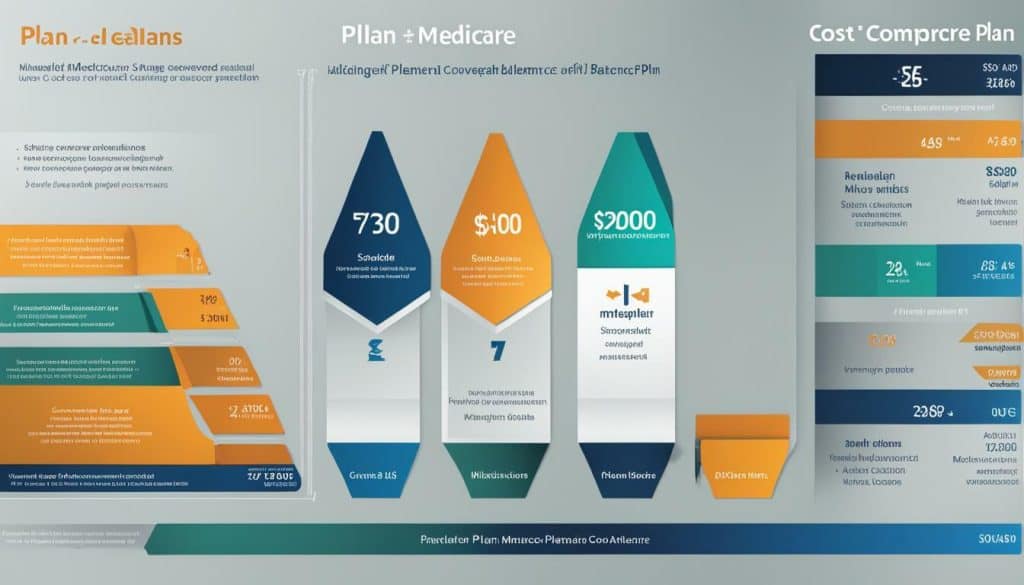Medicare Supplement Plan G vs Plan N: A Comprehensive Guide
Medicare Supplement Plan G and Plan N are two popular options for individuals seeking additional coverage to complement their Original Medicare benefits. These plans provide a way to fill the gaps in healthcare coverage and reduce out-of-pocket expenses.
- Plan G offers more comprehensive coverage than Plan N, including coverage for Part B excess charges and skilled nursing facility coinsurance.
- Plan N may have lower monthly premiums compared to Plan G, making it a more affordable option for some individuals.
- Plan F, which was a popular choice in the past, is no longer available to new Medicare enrollees.
- In Pennsylvania, there are multiple options available for both Plan G and Plan N, with a range of insurance providers offering these plans.
- When deciding between Plan G and Plan N, it’s important to consider individual healthcare needs and compare the coverage and costs of these plans.
Medicare Supplement Plan G provides comprehensive coverage that includes coverage for Part A coinsurance, Part B coinsurance or copayment, blood transfusions, and more. Plan G also covers Part A hospice care coinsurance or copayment and Part A deductible. Additionally, Plan G covers skilled nursing facility coinsurance and Part B excess charges, which are charges that exceed the Medicare-approved amount.
Medicare Supplement Plan N offers similar coverage to Plan G but with a few differences. Plan N covers Part A coinsurance and hospital costs up to an additional 365 days after Medicare benefits are exhausted. It also covers Part B coinsurance or copayment (excluding a copayment of up to $20 for some office visits and up to $50 for emergency room visits that don’t result in an inpatient admission). However, Plan N does not cover Part B excess charges or the Part A deductible.
When comparing Plan G and Plan N, it’s important to consider the coverage provided by each plan and how it aligns with individual healthcare needs. Plan G offers more comprehensive coverage, which may be beneficial for individuals who want minimal out-of-pocket expenses. On the other hand, Plan N may be a more affordable option with lower monthly premiums, especially for those who don’t anticipate frequent doctor visits or hospitalizations.
Consulting with a Medicare Agent with Integrity Now Insurance ensures you get your questions answered and help enroll in the best Medigap plan designed to meet your healthcare needs.
Understanding Medicare Supplement Plan G
Medicare Supplement Plan G offers comprehensive coverage that can help fill the gaps left by Original Medicare. It is one of the most popular supplement plans available, providing individuals with a wide range of benefits and peace of mind.
With Medicare Supplement Plan G, you have coverage for Medicare Part A coinsurance and hospital costs, as well as coverage for Part B coinsurance or copayments. This means that many of your hospital and medical expenses will be covered, allowing you to focus on your health without worrying about unexpected costs.
In addition to these benefits, Medicare Supplement Plan G also covers the cost of the first three pints of blood, hospice care coinsurance or copayments, and skilled nursing facility coinsurance. This comprehensive coverage ensures that you are protected in a variety of situations and can access the care you need.
When considering Medicare Supplement Plan G, it’s important to note that while it offers extensive coverage, it does not cover the Medicare Part B deductible. However, the peace of mind and financial protection provided by this plan make it a popular choice among individuals seeking additional coverage.
The Benefits of Medicare Supplement Plan G
Medicare Supplement Plan G offers a range of benefits that can help individuals manage their healthcare costs more effectively. Here are some key advantages of choosing Plan G:
- Comprehensive Coverage: Plan G provides coverage for a wide range of medical expenses, including hospital stays, doctor visits, and skilled nursing care.
- Freedom to Choose Providers: With Plan G, you have the freedom to choose any healthcare provider that accepts Medicare, giving you flexibility in accessing the care you need.
- No Network Restrictions: Unlike Medicare Advantage plans, Plan G does not have network restrictions, allowing you to receive care from any provider who accepts Medicare.
- Predictable Costs: Plan G helps you budget for healthcare costs by providing clear guidelines on out-of-pocket expenses, such as copayments and coinsurance.
Choosing the right Medicare Supplement plan is an important decision that should be based on your individual healthcare needs and budget. Take the time to compare the coverage and costs of different plans with one of our Medicare Brokers with Integrity Now Insurance Brokers, including Medicare Supplement Plan G, to ensure you make an informed choice that meets your unique requirements.

Understanding Medicare Supplement Plan N
Medicare Supplement Plan N is another option for individuals looking for additional coverage alongside their Original Medicare benefits. It provides a wide range of benefits to help offset out-of-pocket costs that may not be covered by Medicare Part A and Part B.
One of the key features of Plan N is its coverage for Medicare Part B coinsurance or copayment. This means that when you visit a doctor or receive outpatient services, you’ll only be responsible for a small copayment amount. Plan N also covers Part A coinsurance or copayment, as well as the first three pints of blood.
While Plan N offers comprehensive coverage, it’s important to note that there are some out-of-pocket costs associated with this plan. For instance, you’ll be responsible for the Part B deductible, as well as any excess charges that may apply if your healthcare provider does not accept Medicare assignment. Additionally, Plan N does not cover skilled nursing facility coinsurance or Part B excess charges.

| Benefits | Plan N Coverage |
|---|---|
| Medicare Part A coinsurance and hospital costs | Yes |
| Medicare Part B coinsurance or copayment | Yes, except for a copayment of up to $20 for some office visits and up to $50 for emergency room visits that don’t result in an inpatient admission |
| First three pints of blood | Yes |
| Part A hospice care coinsurance or copayment | Yes |
| Skilled nursing facility coinsurance | No |
| Part B deductible | No |
| Part B excess charges | No |
| Foreign travel emergency coverage | Yes, up to plan limits |
Before selecting Medicare Supplement Plan N, it’s important to review the details of the plan and compare it with other options, such as Plan G. Consider your healthcare needs and financial circumstances to determine which plan provides the most suitable coverage for you. Consulting with a licensed insurance agent can also help clarify any questions or concerns you may have.
Coverage Differences Between Plan G and Plan N
While both Medicare Supplement Plan G and Plan N offer additional coverage, there are differences in the specific benefits they provide. Understanding these differences can help you choose the plan that best suits your healthcare needs.
Medicare Supplement Plan G provides more comprehensive coverage compared to Plan N. With Plan G, you have coverage for Part A hospital coinsurance and costs up to an additional 365 days after Medicare benefits are exhausted. You also have coverage for Part B coinsurance or copayment, Part B excess charges, skilled nursing facility coinsurance, and foreign travel emergency care.
On the other hand, Plan N covers Part A hospital coinsurance and costs up to an additional 365 days after Medicare benefits are exhausted. It also covers Part B coinsurance or copayment, except for a copayment of up to $20 for some office visits and up to $50 for emergency room visits that don’t result in an inpatient admission. Additionally, Plan N does not cover Part B excess charges or skilled nursing facility coinsurance.
To help you visualize the coverage differences between Plan G and Plan N, refer to the table below:
| Benefits | Medicare Supplement Plan G | Medicare Supplement Plan N |
|---|---|---|
| Part A hospital coinsurance and costs up to 365 days | ✅ | ✅ |
| Part B coinsurance or copayment | ✅ | ✅ |
| Part B excess charges | ✅ | ❌ |
| Skilled nursing facility coinsurance | ✅ | ✅ |
| Foreign travel emergency care | ✅ | ✅ |
| Copayment for office visits | ✅ | Up to $20 Copay |
| Copayment for emergency room visits | ✅ | Up to $50 Copay |
As you can see, Plan G covers additional benefits such as Part B excess charges and skilled nursing facility coinsurance. However, Plan N may have lower monthly premiums compared to Plan G. It’s important to weigh the coverage and costs of each plan based on your individual healthcare needs to make an informed decision.
Medicare Supplement Plan G vs Plan N” src=”https://medicarehope.com/wp-content/uploads/2023/10/Medicare-Supplement-Plan-G-vs-Plan-N-3-1024×585.jpg” alt=”Medicare Supplement Plan G vs Plan N” width=”1024″ height=”585″ />
Consult a licensed insurance agent or Medicare specialist to further understand the coverage differences between Medicare Supplement Plan G and Plan N and determine which plan aligns best with your specific needs.
Benefits of Medicare Supplement Plan G
Medicare Supplement Plan G provides comprehensive coverage, including benefits that can help minimize out-of-pocket expenses for medical services. With Plan G, you have coverage for Medicare Part A hospital coinsurance and hospital costs up to an additional 365 days after Original Medicare benefits are exhausted. This means you can have peace of mind knowing that you’ll be covered for extended hospital stays.
Additionally, Plan G covers Medicare Part B coinsurance or copayment, which includes coverage for doctor visits, outpatient services, and preventive care. This can help ensure you have access to the necessary medical care without worrying about high out-of-pocket costs. Plan G also covers Part B excess charges, which are the additional fees that some doctors may charge beyond the Medicare-approved amount.
Furthermore, Medicare Supplement Plan G provides coverage for skilled nursing facility care coinsurance, which can be beneficial if you require post-hospital skilled nursing care. This coverage can help ease the financial burden of extended stays in a skilled nursing facility.
Overall, Medicare Supplement Plan G offers robust coverage that can provide extensive financial protection and peace of mind. By choosing Plan G, you can rest assured knowing that you’ll have comprehensive coverage for a wide range of medical services, helping you minimize your out-of-pocket expenses and focus on your health and well-being.
Medicare Supplement Plan G Benefits” src=”https://medicarehope.com/wp-content/uploads/2023/10/Medicare-Supplement-Plan-G-benefits-9-1024×585.jpg” alt=”Medicare Supplement Plan G benefits” width=”1024″ height=”585″ />
| Benefit | Coverage |
|---|---|
| Hospital coinsurance & costs | Up to an additional 365 days after Medicare benefits are exhausted |
| Part B coinsurance or copayment | Coverage for doctor visits, outpatient services, and preventive care |
| Part B excess charges | Coverage for additional fees charged by doctors beyond the Medicare-approved amount |
| Skilled nursing facility coinsurance | Coverage for post-hospital skilled nursing care |
Benefits of Medicare Supplement Plan N
Medicare Supplement Plan N offers a range of benefits that can help individuals manage their healthcare costs while still receiving quality care. This plan covers the Medicare Part A deductible and coinsurance, which can be a significant expense for many people. It also provides coverage for skilled nursing facility coinsurance, which can be important for individuals requiring extended care.
One of the key benefits of Plan N is that it provides coverage for 100% of the Medicare Part B coinsurance, with the exception of a small copayment for certain office visits and emergency room visits. This means that individuals enrolled in Plan N can have peace of mind knowing that a large portion of their outpatient medical expenses will be covered.
Another advantage of Plan N is its lower monthly premiums compared to Plan G. While Plan N does require a copayment for some services, this copayment is typically lower than the excess charges that may be incurred under Plan G. For individuals who are generally healthy and don’t anticipate needing extensive medical care, Plan N can be a cost-effective option.

The table below summarizes the key benefits of Medicare Supplement Plan N:
| Benefits | Medicare Supplement Plan N |
|---|---|
| Medicare Part A deductible and coinsurance | ✔️ |
| Skilled nursing facility coinsurance | ✔️ |
| Medicare Part B coinsurance (except for small copayments) | ✔️ |
| Part B excess charges | ❌ |
In summary, Medicare Supplement Plan N offers comprehensive coverage for Medicare Part A and B expenses, with lower monthly premiums compared to Plan G. It provides individuals with the flexibility to manage their healthcare costs while still receiving the necessary care. Remember to carefully consider your specific healthcare needs and consult with a licensed insurance agent to determine which plan is the best fit for you.
Cost Comparison of Plan G and Plan N
When considering Medicare Supplement Plan G vs Plan N, it’s important to evaluate the costs associated with each plan to find the best option for your budget. Plan G and Plan N have different pricing structures and coverage options, so understanding the costs can help you make an informed decision.
Plan G generally has higher monthly premiums compared to Plan N. This is because Plan G provides more comprehensive coverage, including coverage for Part B excess charges and skilled nursing facility coinsurance, which are not covered by Plan N. However, the higher premiums may be offset by the fact that you’ll have fewer out-of-pocket costs when you need healthcare services.
On the other hand, Plan N typically has lower monthly premiums compared to Plan G. While it doesn’t cover Part B excess charges, you’ll still get coverage for most Medicare Part A and Part B coinsurance and copayments. However, it’s important to note that with Plan N, you may be responsible for up to a $20 copayment for certain office visits and up to a $50 copayment for emergency room visits that don’t result in an inpatient admission.

| Cost Category | Plan G | Plan N |
|---|---|---|
| Monthly Premiums | Higher | Lower |
| Part B Excess Charges | Covered | Not Covered |
| Skilled Nursing Facility Coinsurance | Covered | Not Covered |
| Office Visit Copayments | None | Up to $20 |
| Emergency Room Copayments | None | Up to $50 |
Ultimately, the best plan for you will depend on your individual healthcare needs and budget. If you prefer more comprehensive coverage and are willing to pay higher monthly premiums, Plan G may be the better choice. However, if you are looking for lower monthly premiums and are comfortable with some out-of-pocket costs for office visits and emergency room visits, Plan N could be a suitable option.
Before making a decision, it’s important to review the specifics of each plan and compare the costs and coverage offered. Consider your current health status, frequency of healthcare visits, and potential future healthcare needs to determine which plan aligns best with your budget and healthcare requirements.
Conclusion
In conclusion, understanding the differences between Medicare Supplement Plan G and Plan N is crucial for selecting the plan that best suits your healthcare needs. Both plans offer additional coverage to complement your Original Medicare benefits, but there are key distinctions to consider.
Medicare Supplement Plan G provides more comprehensive coverage, including benefits for Part B excess charges and skilled nursing facility coinsurance. This plan ensures that you have a higher level of protection against unexpected healthcare expenses. However, Plan G may come with higher monthly premiums compared to Plan N.
On the other hand, Medicare Supplement Plan N offers a more budget-friendly option with lower monthly premiums. While it provides coverage for most of the essential healthcare services, such as Part A and B coinsurance, it does not cover Part B excess charges and requires a small copayment for certain doctor visits and emergency room visits.
Ultimately, your decision should be based on your specific healthcare needs and financial considerations. If you are someone who frequently requires medical services or has concerns about potential excess charges, Plan G may be the better choice for you. However, if you are generally healthy and prefer a plan with lower monthly premiums, Plan N could be a suitable option.
It is important to note that the availability and pricing of Medicare Supplement Plan G and Plan N may vary depending on your location, age, sex, and health status. Therefore, it is advisable to consult with insurance providers and compare their offerings to make an informed decision.
FAQ
Q: What is the difference between Medicare Supplement Plan G and Plan N?
A: Medicare Supplement Plan G offers more comprehensive coverage than Plan N, including coverage for Part B excess charges and skilled nursing facility coinsurance, which Plan N does not cover.
Q: Does Medicare Supplement Plan G have more options than Plan N in Pennsylvania?
A: Yes, Plan G has 67 options available across 42 insurance providers, while Plan N has 56 options across over 40 insurance providers in Pennsylvania.
Q: Can new Medicare enrollees sign up for Plan F in Pennsylvania?
A: No, Plan F is no longer available to new Medicare enrollees. However, those who were eligible for Medicare before January 1, 2020, can still sign up for Plan F.
Q: Are there financial assistance programs available for health coverage in New Mexico?
A: Yes, individuals enrolling in coverage through beWellnm in New Mexico may be eligible for federal and state subsidy programs, including federal premium subsidies (APTC) and federal cost-sharing reductions (CSR).
Q: Is financial assistance for health coverage available in Washington state?
A: Yes, Washington State offers federal and state subsidy programs, including federal premium subsidies (APTC) and federal cost-sharing reductions (CSR). It also offers state-funded premium subsidies known as Cascade Care Savings for eligible individuals.
Q: How should individuals decide between Medicare Supplement Plan G and Plan N?
A: Individuals should carefully consider their specific healthcare needs and compare the coverage and costs of Medicare Supplement Plan G and Plan N before making a decision.










